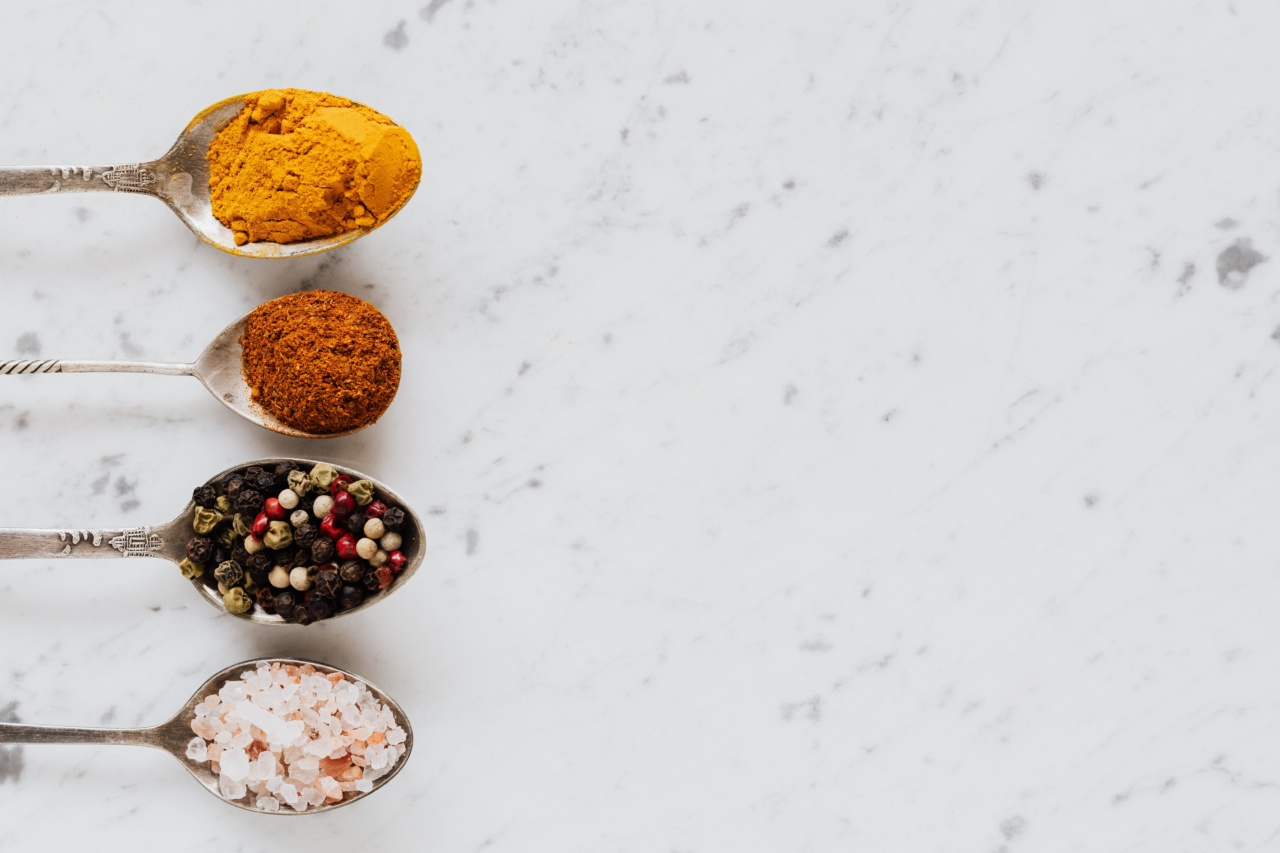Salt is a common seasoning that is used in a wide range of recipes. It adds flavor and taste to dishes, but too much salt can be harmful to our health.
People who are looking to reduce their salt intake can benefit from using salt-free seasonings and spices. Salt-free seasonings can add bold and delicious flavors to your meals without the health risks associated with high salt intake.
In this article, we will explore the world of salt-free seasonings and spices and how they can be used to create delicious and healthy meals.
1. The Problem with Too Much Salt
Most people consume too much salt daily. High salt intake can lead to serious health problems such as high blood pressure, heart disease, and stroke.
The American Heart Association recommends consuming less than 2,300 milligrams of sodium per day, or roughly one teaspoon of salt. However, the average American consumes closer to 3,400 milligrams of sodium per day, which is significantly higher than the recommended limit.
2. The Benefits of Using Salt-Free Seasonings
Reducing salt intake can help prevent health problems and improve overall health. However, many people worry that reducing salt intake will lead to bland and tasteless food.
Salt-free seasonings can provide a wide range of flavors and tastes without the harmful effects of salt. Salt-free seasonings and spices can be used to create delicious and healthy meals that are also low in sodium.
3. Types of Salt-Free Seasonings
There are many types of salt-free seasonings and spices available. Here are some of the most popular salt-free seasonings and their flavors:.
Garlic
Garlic is a flavorful and versatile seasoning that can be used in a variety of dishes. It adds a bold and slightly sweet taste to dishes, and it is good for your health.
Garlic has been shown to have anti-inflammatory and antibacterial properties, and it can help lower cholesterol and blood pressure.
Onion
Onion is a pungent and savory seasoning that is used in many dishes. It adds depth and complexity to dishes and can be used in a variety of ways. Onion is rich in vitamins and minerals, and it has been shown to have cancer-fighting properties.
Lemon Pepper
Lemon pepper is a zesty and tangy seasoning that is perfect for adding flavor to seafood, chicken, and vegetables. It adds a bright and refreshing taste to dishes, and it is low in sodium.
Lemon pepper is also high in vitamin C, which is good for your health.
Cumin
Cumin is a warm and earthy seasoning that is used in many ethnic dishes. It adds a unique and complex flavor to dishes, and it has many health benefits. Cumin has been shown to improve digestion, boost immunity, and reduce inflammation.
Paprika
Paprika is a sweet and smoky seasoning that is used in many dishes. It adds a rich and slightly spicy taste to dishes, and it is low in sodium. Paprika is also rich in antioxidants, which can help reduce inflammation and improve heart health.
4. Tips for Using Salt-Free Seasonings
Using salt-free seasonings and spices can be a great way to reduce salt intake while still enjoying delicious and flavorful meals. Here are some tips for using salt-free seasonings:.
- Experiment with different salt-free seasonings and spices to find your favorite flavors.
- Use fresh herbs and spices for the best flavor and aroma.
- Add salt-free seasonings to soups, stews, marinades, and sauces for added flavor.
- Use citrus juices, vinegar, and wine to add acidity and brightness to dishes.
- Try using salt-free seasonings on vegetables, fish, and poultry instead of salt.
5. Conclusion
Salt-free seasonings and spices are a great way to reduce salt intake while still enjoying delicious and flavorful meals. Using salt-free seasonings can add bold and unique flavors to your dishes, and they can be used in a variety of ways.
Experiment with different salt-free seasonings and spices to find your favorite flavors, and enjoy your healthy and tasty meals!.





























